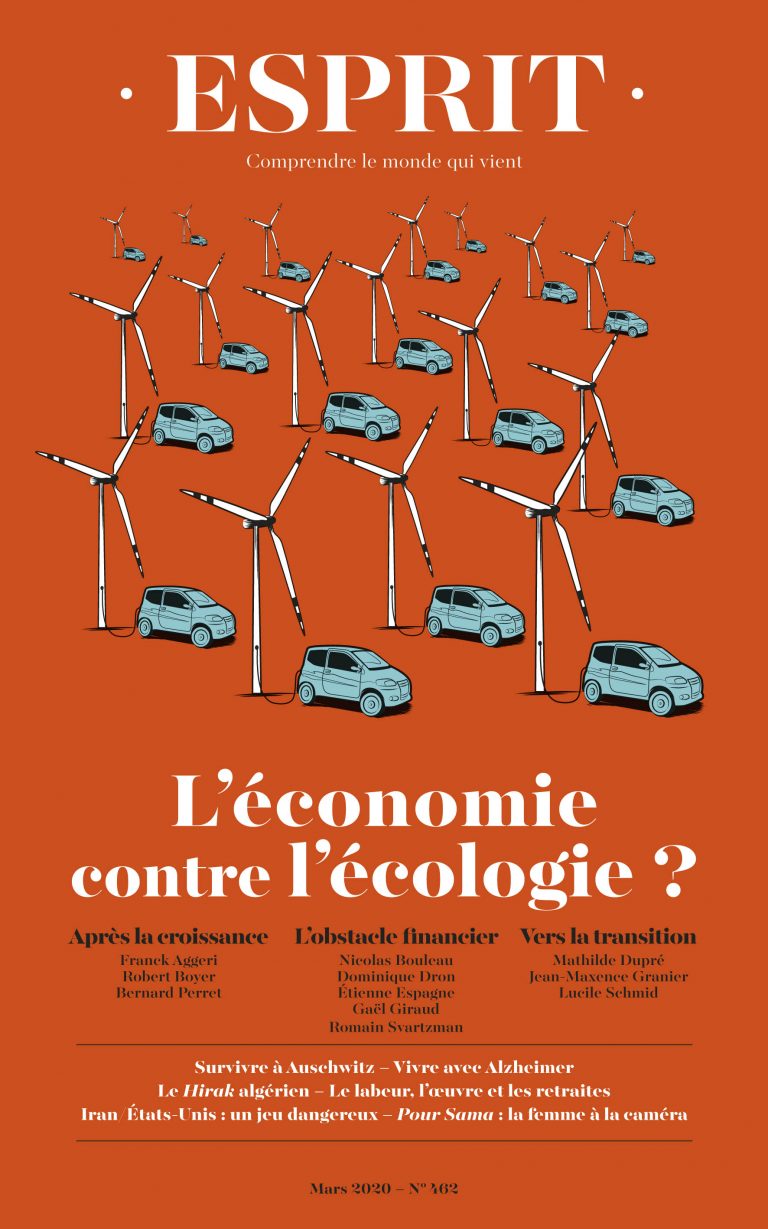Entretien par Antoine Reverchon, Le Monde, Idées, samedi 3 octobre 2020, p. 28-29
L’Histoire , n° 475, Septembre 2020.
Pour Robert Boyer, nous ne vivons pas la répétition d’une grande crise du capitalisme comme en 1929, mais une mise à l’épreuve de la capacité des États à répondre à la demande de sécurité sanitaire, économique, et finalement écologique, des citoyens.
L’Histoire : En quoi la crise que nous vivons aujourd’hui se distingue-t-elle des crises du passé ?
Robert Boyer : La grande nouveauté, c’est que la situation actuelle n’est pas le produit des mécanismes internes au capitalisme comme ce fut le cas en 1929, 1973 ou 2008. En 1929, la crise surgit des contradictions d’un régime d’accumulation caractérisé par une production de masse sans consommation de masse. D’où une chute abyssale de la production, avec déflation et paupérisation de la population. En 1973, c’est le modèle fordiste, fondé sur la conjonction d’une production de masse et d’une consommation de masse, qui s’enraye : à partir de 1967, les États-Unis sont touchés par une accélération de l’inflation, une stagnation de la productivité et, par contrecoup, une tension sur les salaires et un décrochage du statut du dollar. Contrairement à 1929, la demande est bien présente, mais c’est la production qui n’arrive pas à suivre. Le …
Participation au Débat de France Culture, DE CAUSE À EFFETS, LE MAGAZINE DE L’ENVIRONNEMENT par Aurélie Luneau 1 Septembre 2020 à 21 h.
Editions la découverte, Paris, 1er Octobre 2020.
Annexes : Graphiques, figures et tableaux complémentaires à l’ouvrage, Présentation, Introduction, Chapitre 1, Chapitre 2, Chapitre 3, Chapitre 4, Chapitre 5, Chapitre 6, Chapitre 7, Chapitre 8, Chapitre 9, Conclusion.
Depuis le début de la crise mondiale de la covid-19, les questionnements sur l’avenir des capitalismes se sont multipliés. Et nombre de voix se sont élevées pour que les « jours d’après » ne soient plus jamais comme « ceux d’avant ». Dans le court terme, les pronostics étaient confrontés à une incertitude radicale, invitant à la prudence : il faudra du temps pour démêler l’écheveau des responsabilités et construire d’éventuelles alternatives.
D’où l’importance de comprendre les ressorts de la crise. Comme l’a montré le célèbre 18 Brumaire de Louis Bonaparte de Marx (1852), les meilleures analyses « à chaud » sont le fait d’auteurs ayant une vision de la dynamique du système sur un horizon long. C’est pourquoi Robert Boyer, contributeur majeur de l’École de la régulation – qui étudie l’économie comme partie intégrante de sociétés traversées par l’histoire –, est bien placé pour relever ce défi. Lors de crises précédentes, il a démontré la valeur explicative de cette approche, qui prend en compte à la fois les inerties tendant à la reproduction du système et les forces impulsant sa transformation : l’issue n’est pas écrite à l’avance et plus longtemps durent les crises, plus le retour à la situation antérieure devient improbable.
Dans cet essai, l’auteur donne à comprendre les processus déclenchés en 2020 et éclaire sur le champ des possibles. La dislocation des relations internationales, l’éclatement de la zone euro, la déstabilisation de l’État social, la montée des populismes ne sont pas improbables. Mais n’est pas non plus exclue une grande bifurcation vers un nouveau modèle construit sur la complémentarité entre éducation, formation, santé et culture, qui répondrait à la demande de solidarité des citoyens et aux exigences de la transition écologique.
Présentation PowerPoint au Séminaire Cournot du 16 avril 2020
Revista Encuentros, Universidad Autónoma del Caribe. Vol. 18-3. CAPITALISMOS Y ESTADOS EN AMÉRICA LATINA: NUEVAS APROXIMACIONES
Editores/Coordinadores: Esteban Torres, Juan Pablo Gonnet, 2020, p. 100-116 (Espagnol)
Tribune, Idées : Coronavirus et pandémie de COVID-19, Le Monde 27 mars 2020,
in The fictions of American capitalism : working fictions and the economic novel, Jacques Henri Coste et Vincent Dusol (Eds), Livre électronique, Palgrave Macmilan, March 2020, p. 37-68.




